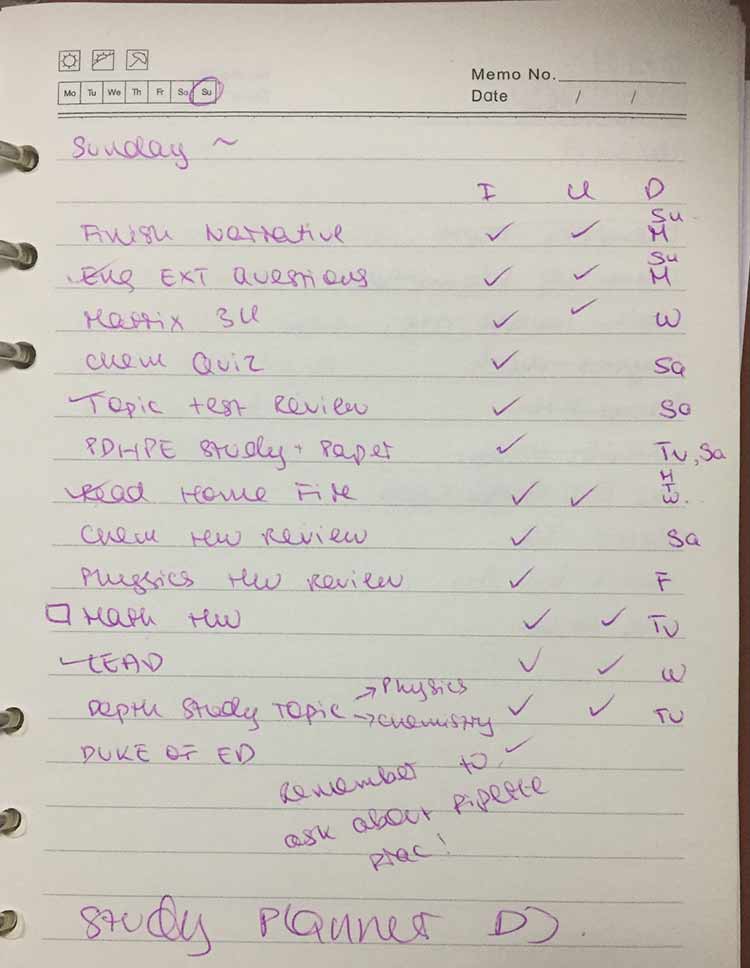Welcome to Matrix Education
To ensure we are showing you the most relevant content, please select your location below.
Select a year to see courses
Learn online or on-campus during the term or school holidays
Learn online or on-campus during the term or school holidays
Learn online or on-campus during the term or school holidays
Learn online or on-campus during the term or school holidays
Learn online or on-campus during the term or school holidays
Learn online or on-campus during the term or school holidays
Learn online or on-campus during the term or school holidays
Get HSC Trial exam ready in just a week
Get HSC exam ready in just a week
Select a year to see available courses
Science guides to help you get ahead
Science guides to help you get ahead
In this post, Amanda shares her top tips to beat procrastination and get organised for the HSC!

Join 75,893 students who already have a head start.
"*" indicates required fields

Join 8000+ students each term who already have a head start on their school academic journey.
Amanda Shi is currently a Year 12 student at James Ruse High School gearing up for the 2020 HSC. In this article, she shares her secrets for using checklists for Year 11 Success.
Amanda
James Ruse Agricultural High School
Medicine
99.8+
Pediatrician because children are so wholesome and fun to be around ?
Mathematics because I was consistently applying the knowledge I learnt in school and Matrix. I found that doing past papers made me feel a lot more confident going into the exam under timed conditions.
English. I continued to struggle with creative writing.
But in saying that, I managed to pull through (and learn heaps in the process!!) with continuous feedback from my teachers. (PS: Matrix English tutors and teachers are very helpful for sourcing inspiration and getting a fresh opinion on your work).
Boost your HSC English marks from home
Expert teachers, detailed feedback, one-to-one help! Learn from home with Matrix+ OnlineEnglish courses.
I always use checklists!!
If nothing else, checklists help me remember everything I need to do (and is extremely satisfying to tick off), particularly when I’m stuck in a busy assessment block.
I like to use weekly checklists because I find it difficult to set in stone what I need to achieve in a day, so often I find myself carrying over tasks to the next day.
Every Sunday, I write a master list of everything and anything I need to address. I like to use the following headings to make it clear what I need to prioritise and how I should organise my schedule:
| TASK | IMPORTANT? | URGENT? | DAY TO BE COMPLETED |
I usually abbreviate the headings though. Here’s what that looks like in practice:

It doesn’t have to be crazy neat or complex. If it works for you, that’s what matters 🙂
Past papers are another one of my learning essentials.
In fact, they should be essential to anyone who wants to get a mark that truly reflects their knowledge and ability.
Not only do past papers expose you to a range of real exam questions, but they push you to think under time pressure.
I find this particularly important for English where your mark is often largely determined by how well you engage with an unseen question.
It can be quite daunting to launch into past papers straight away, so generally I do past papers in the following progressive order:
For English and long responses, I always try to get a teacher to look over my work. But, for Chemistry, Physics and Maths, I find it more convenient to mark my own work and ask for help if necessary.
I found that consistently doing past papers (even just parts of them) during the term allowed me to consolidate my knowledge and build my long term memory. This in turn set me up for success in the busy assessment periods.
Physically and mentally, it is not possible to be working all the time. That’s why it is important to give yourself rest breaks and find a hobby that relaxes you so that you are productive when you actually are working.
I personally like volunteering in my community (I recently started volunteering in a few different ways) because it helps take my mind off my petty issues and enjoy being a part of something bigger.
Sometimes a solid nap solves all my problems!!
Going for a swim can also be quite calming.
My biggest regret is holding myself back from extracurriculars because I was afraid that they would overwhelm me and cause more stress.
I’ve learnt that it’s the opposite because extracurriculars are destressors in disguise that will help increase your productivity. Things like getting involved in the school musical, running for leadership roles and becoming a swim coach for disabled children are all new experiences that have made me grow as an individual.
Moreover, they helped improve my work ethic as I became more organised in my studies to pursue these passions.
However, like everything in life, it is only good in moderation.
If I could do high school all over, I would definitely get more involved in school life and the community.
Written by Guest Author
We have regular contributions to our blog from our Tutor Team and high performing Matrix Students. Come back regularly for these guest posts to learn their study hacks and insights!© Matrix Education and www.matrix.edu.au, 2025. Unauthorised use and/or duplication of this material without express and written permission from this site’s author and/or owner is strictly prohibited. Excerpts and links may be used, provided that full and clear credit is given to Matrix Education and www.matrix.edu.au with appropriate and specific direction to the original content.